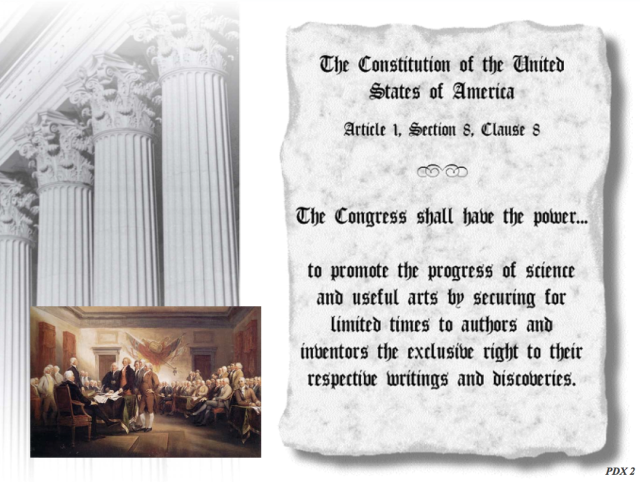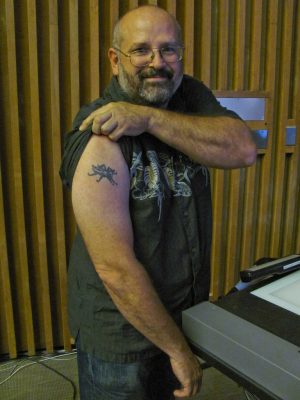
Vringo's win over Google was one of the biggest and most public jury wins for a "patent troll" in recent years. It won $30 million from a jury verdict in 2012, far less than the half-billion-dollar verdict it was seeking.
But last year, the judge overseeing the case revived Vringo's hopes, ordering Google to pay a running royalty amounting to 1.36 percent of US AdWords sales. Those additional payments could have been more than $200 million annually, pushing Vringo investors toward the billion-dollar payday they were pining for.
Today, the dream of getting rich by trading Vringo's lawsuit-driven stock is dead. A three-judge panel on the US Court of Appeals for the Federal Circuit has eviscerated (PDF) Vringo's patents, ruling 2-1 that they are obvious.
Vringo's stock began to plummet after the ruling was released. NASDAQ halted trades on the VRNG stock for just over one hour, before allowing it to resume after noon Eastern time. The stock is down 70 percent, trading at just under $1 per share at press time.
"The Company is evaluating its options with respect to the case," Vringo said in a statement.
"We always believed strongly in our case, and we are pleased with this decision," Google Director of IP Litigation Catherine Lacavera said via e-mail.
Vringo also sued Microsoft over its Bing search engine in January 2013. Microsoft quickly settled the suit, giving Vringo six additional patents, and agreed to pay Vringo $1 million plus five percent of whatever was won from Google. That final payment now looks like it will be five percent of nothing.
Big claims, tiny disclosure
Vringo once had a small "video ringtone" business, but today its value is in its patents. It purchased foundational patents from Lycos, an early search engine, and put them in a holding company it calls I/P Engine (which is the named plaintiff in this lawsuit). Vringo's new patents were hyped by Silicon Valley personality James Altucher, who crowed about the genius of the named inventors on TechCrunch in an article entitled "Why Google Might Be Going to $0."

That hype will die now, and the result will resonate beyond Vringo's case. By dismantling two patents from a once-famed search engine on this basis, the majority has sent a message that more Federal Circuit judges are willing to invalidate patents following the results of this year's most important Supreme Court patent case, Alice v. CLS Bank. That opinion, which was cited in a concurring opinion, said that obvious ideas—especially ones that don't amount to more than an idea surrounded with computer jargon—shouldn't get patents.
The harsh result for Vringo was bad enough that at least three other patent troll stocks also saw modest price drops.
Two judges found that the two patents, numbered 6,775,664 and 6,314,420, were invalid because the prior art, viewed as a whole, rendered them obvious.
"I/P Engine’s claimed invention is obvious as a matter of law because it simply combines content-based and collaborative filtering, two information filtering methods that were well-known in the art," stated the unsigned "per curiam" majority opinion.
Retaining a query for use in filtering was "entirely predictable and grounded in common sense," they wrote. Vringo lawyers further argued that earlier systems used "ranking" rather than "filtering," but the majority found that difference unconvincing.
A concurring opinion by Circuit Judge Haldane Mayer is more strongly worded.
Vringo's patents "simply recite the use of a generic computer to implement a well-known and widely practiced technique for organizing information," wrote Mayer. "If this determination had been made in the first instance as directed by the Supreme Court, unnecessary litigation, and nearly two weeks of trial and imposition on citizen jurors, could have been avoided."
Further, the "broad and sweeping reach" of the Vringo patents is "vastly disproportionate to their minimal disclosure," wrote Mayer.
Circuit Judge Raymond Chen dissented, writing that "the majority fails to accord sufficient deference to the jury’s findings of fact... We need something beyond the invocation of the phrase 'common sense' or 'simple logic' to demonstrate the reason to combine the prior art references in this case."
"The record does not suggest a benefit or rationale that would have caused a skilled artisan to use the query as part of collaborative filtering in 1998," wrote Chen, who joined the court last year after serving many years as a top lawyer at the US Patent and Trademark Office.
Vringo also sued four Google clients who used AdWords: AOL, Gannet Co., IAC Search & Media, and Target. Google handled the defense of the case for all parties.
reader comments
107